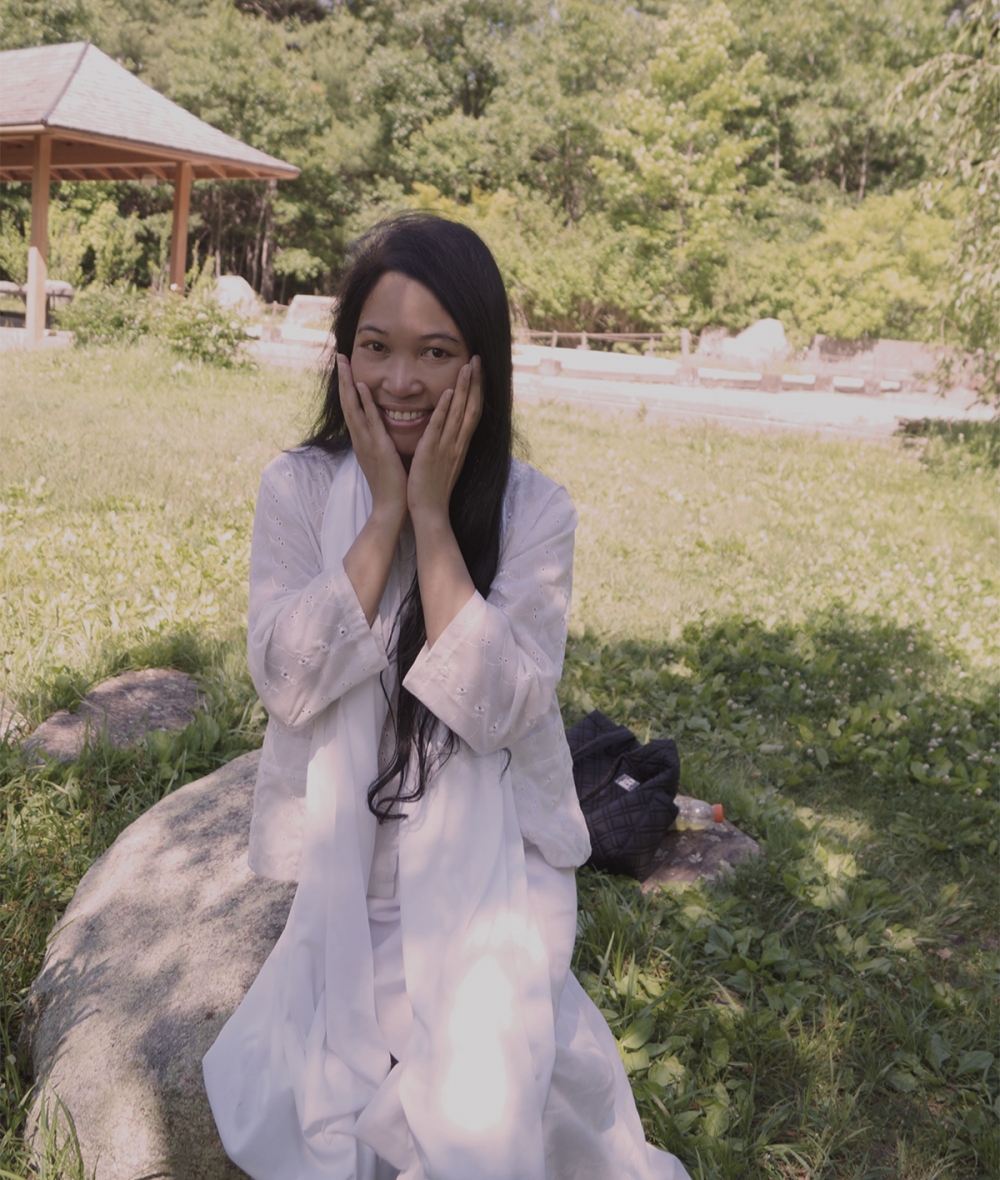-
People who truly love you… Comment July 17, 2015 -
Happy for no reason Comment July 16, 2015Be happy for no reason, like a child. If you are happy for a reason, you’re in trouble,
because that reason can be taken from you.Meditation is not a way of making your mind quiet. It’s a way of entering into the quiet
that’s already there-buried under the 50,000 thoughts the average person thinks every day.
~Deepak Chopra -
Giving Up Power Comment July 16, 2015 This story happened very long ago, at a time when people lived much longer lives, even 10,000 years! After King Fruitful had ruled for about 7,000 years, it just so happened that the royal gardener brought him an especially wonderful collection of fruits and flowers. He liked them so much that he wanted to see the garden. So the gardener arranged and decorated the garden, and invited him to visit.
This story happened very long ago, at a time when people lived much longer lives, even 10,000 years! After King Fruitful had ruled for about 7,000 years, it just so happened that the royal gardener brought him an especially wonderful collection of fruits and flowers. He liked them so much that he wanted to see the garden. So the gardener arranged and decorated the garden, and invited him to visit.The king set out on a royal elephant, followed by the entire court and many of the ordinary people of Mithila. When he entered through the garden gate he saw two beautiful mango trees. One was full of perfectly ripe mangoes, while the other was completely without fruit. He took one of the fruits and enjoyed its delicious sweet taste. He decided to eat more of them on his return trip.
When the people saw that the king had eaten the first fruit, they knew it was all right for them to eat. In no time at all the mangoes had been eaten. When the fruits were gone, some even broke the twigs and stripped the leaves looking for more.
When King Fruitful returned he saw that the tree was stripped bare and nearly destroyed. At the same time the fruitless tree remained as beautiful as before, its bright green leaves shining in the sunlight.
The king asked his ministers, “What has happened here?” They explained, “Since your majesty ate the first fruit, the people felt free to devour the rest. Searching for more fruits they even destroyed the leaves and twigs. The fruitless tree was spared and remains beautiful, since it has no fruit.”
This saddened the king. He thought, “This fruitful tree was destroyed, but the fruitless one was spared. My kingship is like the fruitful tree – the more the power and possessions, the greater the fear of losing them. The holy life of a simple monk is like the fruitless tree – giving up power and possessions leads to freedom from fear.”
So the Great Being decided to give up his wealth and power, to leave the glory of kingship behind, to abandon the constant task of protecting his position. Instead he decided to put all his effort into living the pure life of a simple monk. Only then could he discover lasting deep happiness, which would spread to others as well.
He returned to the city. Standing next to the palace gate, he called for the commander of the army. He said, “From now on, no one is to see my face except a servant bringing food and a servant bringing water and toothbrush. You and the ministers will rule according to the old law. I will live as a simple monk on the top floor of the palace.”
After he had lived for a while in this way, the people began to wonder about the change in him. One day a crowd gathered in the palace courtyard. They said, “Our king is not as he was before. He no longer wants to see dancing or listen to singing or watch bull fights and elephant fights or go to his pleasure garden and see the swans on the ponds. Why does he not speak to us?” They asked the servants who brought the king his food and water, “Does he tell you anything?”
They said, “He is trying to keep his mind from thinking about desirable things, so it will be peaceful and wholesome like the minds of his old friends, the Silent Buddhas. He is trying to develop the purity of the ones who own nothing but good qualities. Once we even heard him say out loud, “I can think only of the Silent Buddhas, free from chasing ordinary pleasures. Their freedom makes them truly happy – who will take me to where they live?”
King Fruitful had been living on the top floor of the palace trying to be a simple monk for only about four months. At that point he realised there were too many distractions in the beautiful kingdom of Mithila. He saw them as only an outer show keeping him from finding inner peace and Truth. So he decided, once and for all, to give up everything and become a forest monk and go live in the Himalaya Mountains.
He had the yellow robes and begging bowl of a monk brought to him. He ordered the royal barber to shave his head and beard. Then early the next morning, he began walking down the royal staircase.
Meanwhile Queen Sivali had heard about his plans. She gathered together the 700 most beautiful queens of the royal harem and took them up the staircase. They passed King Fruitful coming down, but didn’t recognise him dressed as a monk. When they got to the top floor, Queen Sivali found it empty, with only the king’s shaven hair and beard still there. Instantly she realised the unknown monk must be her husband.
All 701 queens ran down the stairs to the palace courtyard. There they followed the king-turned-monk. As Queen Sivali had instructed them, they all let down their hair and tried to entice the king to stay. They cried and cried, pleading with him, “Why are you doing this?” Then all the people of the city became very upset and began following him. They were weeping as they cried out, “We have heard that our king has become a simple monk. How can we ever find such a good and fair ruler again?”
The 700 harem queens, wearing all their lovely veils and rich jewellery, crying and begging, did not change the mind of the Enlightenment Being. For he had made his decision and was determined to stick to it. He had given up the gold anointing bowl of state, which had passed the power of the royal family to him. Instead he now carried only the plain clay-begging bowl of a humble monk, a seeker of Truth. Continue reading
-
Clinging to Suffering by Seeking Relief Comment July 16, 2015In truth, happiness is suffering in disguise but in such a subtle form that you don’t see it. If you cling to happiness, it the same as clinging to suffering, but you don’t realize it. When you hold onto happiness, it’s impossible to throw away the inherent suffering. They’re inseparable like that. Thus the Buddha taught us to know suffering, see it as the inherent harm in happiness, to see them as equal. So be careful! When happiness arises, don’t be overjoyed, and don’t get carried away. When suffering comes, don’t despair, don’t lose yourself in it. See that they have the same equal value.
~Ajahn Chah

Ajahn Chah. Photo source: dharmathai.com
-
Training the Mind: Verse 2 Comment July 16, 2015Whenever I interact with someone,
May I view myself as the lowest amongst all,
And, from the very depths of my heart,
Respectfully hold others as superior.By H.H. Dalai Lama
The first verse pointed to the need to cultivate the thought of regarding all other sentient beings as precious. In the second verse, the point being made is that the recognition of the preciousness of other sentient beings, and the sense of caring that you develop on that basis, should not be grounded on a feeling of pity toward other sentient beings, that is, on the thought that they are inferior. Rather, what is being emphasized is a sense of caring for other sentient beings and a recognition of their preciousness based on reverence and respect, as superior beings. I would like to emphasize here how we should understand compassion in the Buddhist context. Generally speaking, in the Buddhist tradition, compassion and loving kindness are seen as two sides of same thing.
Compassion is said to be the empathetic wish that aspires to see the object of compassion, the sentient being, free from suffering. Loving kindness is the aspiration that wishes happiness upon others. In this context, love and compassion should not be confused with love and compassion in the conventional sense. For example, we experience a sense of closeness toward people who are dear to us. We feel a sense of compassion and empathy for them. We also have strong love for these people, but often this love or compassion is grounded in self-referential considerations: “So-and-so is my friend,” “my spouse,” “my child,” and so on. What happens with this kind of love or compassion, which may be strong, is that it is tinged with attachment because it involves self-referential considerations. Once there is attachment there is also the potential for anger and hatred to arise. Attachment goes hand in hand with anger and hatred. For example, if one’s compassion toward someone is tinged with attachment, it can easily turn into its emotional opposite due to the slightest incident. Then instead of wishing that person to be happy, you might wish that person to be miserable.
True compassion and love in the context of training of the mind is based on the simple recognition that others, just like myself, naturally aspire to be happy and to overcome suffering, and that others, just like myself, have the natural right to fulfill that basic aspiration. The empathy you develop toward a person based on recognition of this basic fact is universal compassion. There is no element of prejudice, no element of discrimination. This compassion is able to be extended to all sentient beings, so long as they are capable of experiencing pain and happiness. Thus, the essential feature of true compassion is that it is universal and not discriminatory. As such, training the mind in cultivating compassion in the Buddhist tradition first involves cultivating a thought of even-mindedness, or equanimity, toward all sentient beings.
For example, you may reflect upon the fact that such-and-such a person may be your friend, your relative, and so forth in this life, but that this person may have been, from a Buddhist point of view, your worst enemy in a past life. Similarly, you apply the same sort of reasoning to someone you consider an enemy: although this person may be negative toward you and is your enemy in this life, he or she could have been your best friend in a past life, or could have been related to you, and so on. By reflecting upon the fluctuating nature of one’s relationships with others and also on the potential that exists in all sentient beings to be friends and enemies, you develop this even-mindedness or equanimity.
The practice of developing or cultivating equanimity involves a form of detachment, but it is important to understand what detachment means. Sometimes when people hear about the Buddhist practice of detachment, they think that Buddhism is advocating indifference toward all things, but that is not the case. First, cultivating detachment, one could say, takes the sting out of discriminatory emotions toward others that are based on considerations of distance or closeness. You lay the groundwork on which you can cultivate genuine compassion extending to all other sentient beings. The Buddhist teaching on detachment does not imply developing an attitude of disengagement from or indifference to the world or life.
Moving on to another line of the verse, I think it is important to understand the expression “May I see myself lower than all others” in the right context. Certainly it is not saying that you should engage in thoughts that would lead to lower self-esteem, or that you should lose all sense of hope and feel dejected, thinking, “I’m the lowest of all. I have no capacity, I cannot do anything and have no power.”
This is not the kind of consideration of lowness that is being referred to here. The regarding of oneself as lower than others really has to be understood in relative terms. Generally speaking, human beings are superior to animals. We are equipped with the ability to judge between right and wrong and to think in terms of the future and so on. However, one could also argue that in other respects human beings are inferior to animals. For example, animals may not have the ability to judge between right and wrong in a moral sense, and they might not have the ability to see the long-term consequences of their actions, but within the animal realm there is at least a certain sense of order.
If you look at the African savannah, for example, predators prey on other animals only out of necessity when they are hungry. When they are not hungry, you can see them coexisting quite peacefully. But we human beings, despite our ability to judge between right and wrong, sometimes act out of pure greed. Sometimes we engage in actions purely out of indulgence–we kill out of a sense of “sport,” say, when we go hunting or fishing. So, in a sense, one could argue that human beings have proven to be inferior to animals. It is in such relativistic terms that we can regard ourselves as lower than others.
One of the reasons for using the word “lower” is to emphasize that normally when we give in to ordinary emotions of anger, hatred, strong attachment, and greed, we do so without any sense of restraint. Often we are totally oblivious to the impact our behavior has on other sentient beings. But by deliberately cultivating the thought of regarding others as superior and worthy of your reverence, you provide yourself with a restraining factor. Then, when emotions arise, they will not be so powerful as to cause you to disregard the impact of your actions upon other sentient beings. It is on these grounds that recognition of others as superior to yourself is suggested. Link source
-
Kitty and pig Comment July 16, 2015People who run animal sanctuaries for farmed animals often report that pigs, like humans, enjoy listening to music, playing with soccer balls, and getting massages. If given sufficient space, they will be careful not to soil the area where they sleep or eat. Pigs don’t “sweat like pigs”; they are actually unable to sweat. They like to bathe in water or mud to keep cool, and they actually prefer water to mud. One woman developed a shower for her pigs, and they learned to turn it on and off by themselves. Source: Peta2
-
Without respect, there is no love Comment July 16, 2015 -
We strive to Love each other Comment July 16, 2015We live in a disrespectful, hateful & harsh world but we strive to Love each other, and become successful but without God is gets stressful. ~Lorenzo Hart

-
It is faith… Comment July 16, 2015 -
That’s how it works Comment July 15, 2015

















